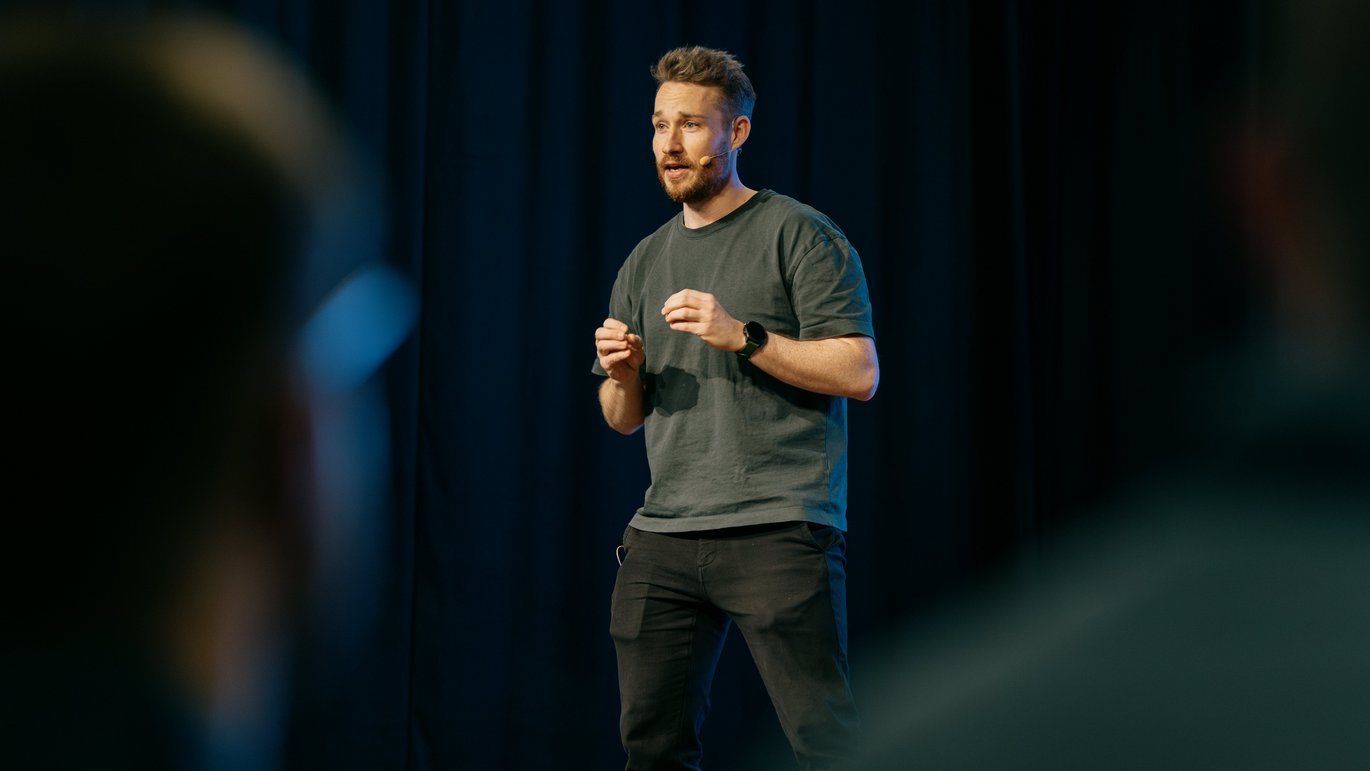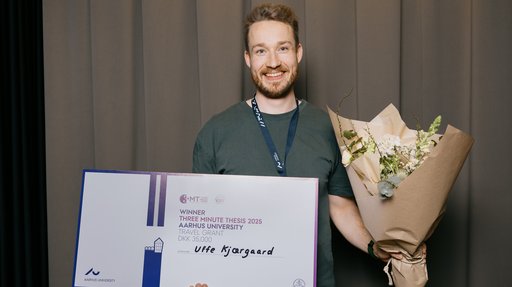“It was absolutely wild – I honestly didn’t think I would win.”
How do you condense several years of research into three minutes and a single slide? That was the question Uffe Kjærgaard asked himself when he signed up for this year’s 3 Minute Thesis competition, held on March 19.

“It was incredibly difficult,” admits Uffe Kjærgaard and continues:
“I had to leave out a lot of things that I actually think are important for understanding my research. But in three minutes, you really have to cut to the bone.”
Uffe Kjærgaard is a PhD student at the Department of Clinical Medicine, researching liver metabolism with a focus on how it changes in relation to disease.
At this year’s 3 Minute Thesis competition, he told the audience how an advanced MRI technique – hyperpolarization - could potentially be used to detect liver cancer earlier in the course of the disease than is currently possible.
“With hyperpolarization, we can measure the conversion of sugar into substances like lactic acid and amino acids. This allows us to observe how the liver responds in different physiological states and diseases - which we hope can lead to earlier diagnosis of liver cancer,” says Uffe Kjærgaard.
Participation as a form of skill development
3 Minute Thesis is an international communication competition where PhD students from numerous universities present their research in just three minutes to a non-specialist audience.
When Aarhus University’s 2025 edition took place in Stakladen on March 19, 17 candidates competed for first place. Prior to the event, participants attended workshops and feedback sessions focused on science communication.
Uffe Kjærgaard says he signed up for the competition specifically to improve in that area.
“As a researcher working with very complex methods in a narrow field, it's a huge challenge to communicate your research to people unfamiliar with the subject. I was hoping to gain some rhetorical tools to capture the audience’s attention, and I definitely got that through the workshop,” he explains.
A surprising result
The atmosphere was electric during the final in Stakladen. A large and engaged audience watched the presentations, and Uffe Kjærgaard began to feel the nerves.
“I was really nervous just before going on stage. The nervousness eased a bit once I got started, and luckily, the audience was kind and engaged - that helped a lot. But it’s definitely a bit daunting to stand up there and ‘perform’ like that,” he says.
But Uffe Kjærgaard must have convinced both the audience and the jury with his attempt to distill complex scientific concepts into an engaging and accessible presentation. When the winner of the competition was announced, it was Uffe Kjærgaard who was called to the stage.
“I didn’t understand it - and I still don’t think it’s quite sunk in that I actually won the competition. I really think the others did a great job. I was standing on the sidelines watching Peter Bæk’s presentation and was sure he would win - he did incredibly well,” says Uffe Kjærgaard.
As the winner of this year’s 3MT competition, he receives a prize of 35,000 DKK, which he already has plans for.
“Some of the prize money will go toward a major MRI conference in May, and it also gives me the opportunity to attend more international conferences in the future. It definitely opens some doors,” he says.

One step at a time - with eyes on Bologna
The next step is the international 3MT final at the Coimbra Group conference in Bologna. Here, the top three presentations from 35 European universities will compete for the international title.
“You’re not automatically in the final, unfortunately. A panel reviews videos of the winners from all participating universities, and only the top three move on, so the competition is fierce,” explains Uffe Kjærgaard.
Until then, he’s focused on completing his projects at the MR Research Centre in Aarhus and enjoying the last phase of his PhD before returning to work in the clinic.
“The most important thing for me is that my research reaches a broader audience. I have a lot of exciting projects here at the MR Research Centre that I need to finish before submitting my PhD thesis in September. And of course, I’m keeping my fingers crossed that I’ll get the chance to compete in the final,” says Uffe Kjærgaard.
Contact
PhD student Uffe Kjærgaard
Aarhus University, Department of Clinical Medicine
Email: uffe@clin.au.dk